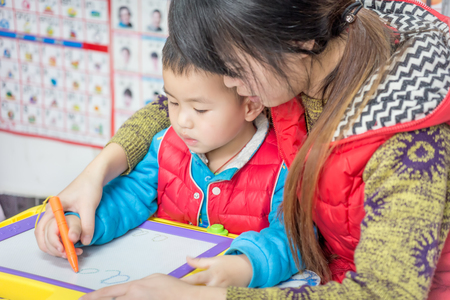How Active Roles for Parents in Education Can Benefit Children
Educational institutions are increasingly beginning to realize that parental involvement is crucial to how well – or poorly – a child does in school.
Children whose parents are deeply involved in the process of education consistently get higher grades and do better in tests than children who don’t have the active support of their parents.
But that’s just the beginning!
Children whose parents support the educational process have better social skills, get along better with their peers and show far less inclination for anti-social behavior. Children who know their parents ‘stand with them,’ so to speak, attend school regularly, and merge well with the school environment.
Best of all, when parents take an active interest in a child’s education, that child is far more likely to go to college and graduate – that is to say, such a child is likely to truly benefit from all the greatest and best advantages of an advanced education!
The benefits are indeed obvious, but…
Many parents find that taking an active part in a child’s education can grow increasingly difficult as a child grows older. This is especially true for minority or underprivileged groups. In such groups, the parents themselves might be overworked or poorly educated. As their child grows older, the education of the child might outstrip that of the parent, making it increasingly difficult for the parent to take any active role in their child’s education.
How can schools help?
Remember that large schools can appear impersonal to parents. More than that, since a number of teachers are interacting with the child, a parent can lack a single, reliable point of contact with the school. So it’s all about communication.
Communication between educators and parents is key
Schools can help, by holding programs that increase the interaction between parents and educators – both of whom, obviously, have the child’s interests at heart. Such programs can tell parents about school activities and about how a parent can assist in the child’s efforts to learn at home. Allowing parents to interact with school authorities when making important decisions can also make the process more meaningful for them.
The school can be a focal point for interaction between teachers and parents. Making this so it has the potential to create increasingly better futures for our children.
source: http://www.edweek.org/ew/issues/parent-involvement/index.html


Recent Comments